formerly eScholarship Editions


|
|
|
|
Your search for
'European Studies' in subject
found 58 book(s). | Modify Search | Displaying 1 - 20 of 58 book(s) | |
| 1. | 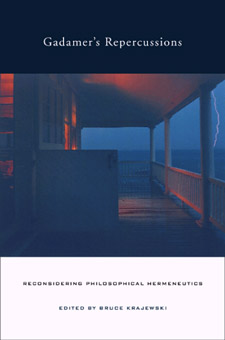 | Title: Gadamer's repercussions: reconsidering philosophical hermeneutics Author: Krajewski, Bruce 1959- Published: University of California Press, 2003 Subjects: Philosophy | Social and Political Thought | European Studies Publisher's Description: Certainly one of the key German philosophers of the twentieth century, Hans-Georg Gadamer also influenced the study of literature, art, music, sacred and legal texts, and medicine. Indeed, while much attention has been focused on Gadamer's writings about ancient Greek and modern German philosophy, the relevance of his work for other disciplines is only now beginning to be properly considered and understood. In an effort to address this slant, this volume brings together many prominent scholars to assess, re-evaluate, and question Hans-Georg Gadamer's works, as well as his place in intellectual history. The book includes a recent essay by Gadamer on "the task of hermeneutics," as well as essays by distinguished contributors including Jürgen Habermas, Richard Rorty, Gerald Bruns, Georgia Warnke, and many others. The contributors situate Gadamer's views in surprising ways and show that his writings speak to a range of contemporary debates - from constitutional questions to issues of modern art. A controversial final section attempts to uncover and clarify Gadamer's history in relation to National Socialism. More an investigation and questioning than a celebration of this venerable and profoundly influential philosopher, this collection will become a catalyst for any future rethinking of philosophical hermeneutics, as well as a significant starting place for rereading and reviewing Hans-Georg Gadamer. [brief] Similar Items |
| 2. | 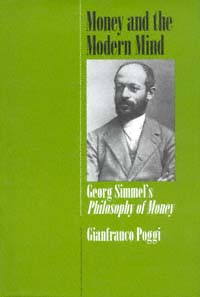 | Title: Money and the modern mind: George Simmel's Philosophy of money Author: Poggi, Gianfranco Published: University of California Press, 1993 Subjects: Social Science | Philosophy | Economics and Business | Social Theory | European Studies Publisher's Description: A major representative of the German sociological tradition, Georg Simmel (1858-1918) has influenced social thinkers ranging from the Chicago School to Walter Benjamin. His magnum opus, The Philosophy of Money , published in 1900, is nevertheless a difficult book that has daunted many would-be readers. Gianfranco Poggi makes this important work accessible to a broader range of scholars and students, offering a compact and systematically organized presentation of its main arguments.Simmel's insights about money are as valid today as they were a hundred years ago. Poggi provides a sort of reader's manual to Simmel's work, deepening the reader's understanding of money while at the same time offering a new appreciation of the originality of Simmel's social theory. [brief] Similar Items |
| 3. | 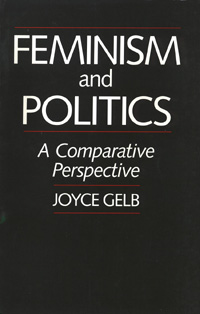 | Title: Feminism and politics: a comparative perspective Author: Gelb, Joyce 1940- Published: University of California Press, 1989 Subjects: Politics | Gender Studies | European Studies | Public Policy Publisher's Description: This incisive work provides a comparative political analysis of the women's movement in England, the United States, and Sweden from the 1960s to the present. Based on extensive interviews in each of the three countries, Feminism and Politics focuses not only on the internal dynamics of the movements themselves, but also on the relationship of feminist politics to the political process as a whole and to the economic and ideological context.Gelb finds that differences in the feminist movements in each country relate to systemic and cultural differences. In Britain the closed nature of the political system has greatly narrowed opportunities for feminist political activities. By contrast, the feminist movement in the United States has enjoyed relative autonomy and success, primarily because it has been unconstrained by the necessity of working through existing groups such as unions and political parties. In Sweden Gelb finds an anomalous situation in which the state has implemented many feminist policies but has allowed little ideological or political space for an autonomous movement.In its scope and analysis, Feminism and Politics offers a valuable new perspective on women's political activities. [brief] Similar Items |
| 4. | 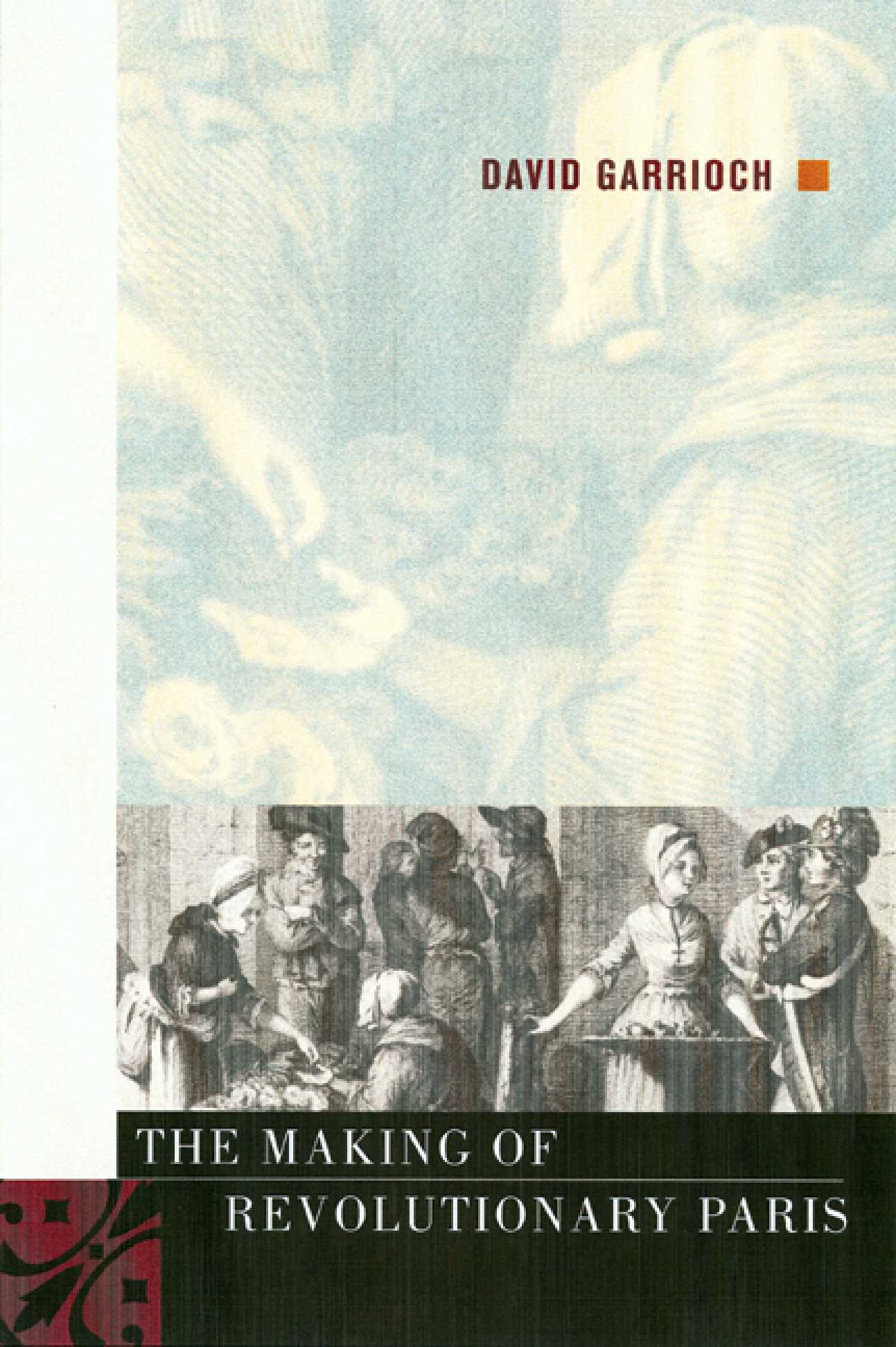 | Title: The making of revolutionary Paris Author: Garrioch, David Published: University of California Press, 2002 Subjects: History | European History | European Studies | French Studies Publisher's Description: The sights, sounds, and smells of life on the streets and in the houses of eighteenth-century Paris rise from the pages of this marvelously anecdotal chronicle of a perpetually alluring city during one hundred years of extraordinary social and cultural change. An excellent general history as well as an innovative synthesis of new research, The Making of Revolutionary Paris combines vivid portraits of individual lives, accounts of social trends, and analyses of significant events as it explores the evolution of Parisian society during the eighteenth century and reveals the city's pivotal role in shaping the French Revolution. David Garrioch rewrites the origins of the Parisian Revolution as the story of an urban metamorphosis stimulated by factors such as the spread of the Enlightenment, the growth of consumerism, and new ideas about urban space. With an eye on the broad social trends emerging during the century, he focuses his narrative on such humble but fascinating aspects of daily life as traffic congestion, a controversy over the renumbering of houses, and the ever-present dilemma of where to bury the dead. He describes changes in family life and women's social status, in religion, in the literary imagination, and in politics. Paris played a significant role in sparking the French Revolution, and in turn, the Revolution changed the city, not only its political structures but also its social organization, gender ideologies, and cultural practices. This book is the first to look comprehensively at the effect of the Revolution on city life. Based on the author's own research in Paris and on the most current scholarship, this absorbing book takes French history in new directions, providing a new understanding of the Parisian and the European past. [brief] Similar Items |
| 5. |  | Title: The Jews of modern France Author: Hyman, Paula 1946- Published: University of California Press, 1998 Subjects: Jewish Studies | French Studies | European Studies | History | European History | Judaism | Urban Studies Publisher's Description: The Jews of Modern France explores the endlessly complex encounter of France and its Jews from just before the Revolution to the eve of the twenty-first century. In the late eighteenth century, some forty thousand Jews lived in scattered communities on the peripheries of the French state, not considered French by others or by themselves. Two hundred years later, in 1989, France celebrated the anniversary of the Revolution with the largest, most vital Jewish population in western and central Europe.Paula Hyman looks closely at the period that began when France's Jews were offered citizenship during the Revolution. She shows how they and succeeding generations embraced the opportunities of integration and acculturation, redefined their identities, adapted their Judaism to the pragmatic and ideological demands of the time, and participated fully in French culture and politics. Within this same period, Jews in France fell victim to a secular political antisemitism that mocked the gains of emancipation, culminating first in the Dreyfus Affair and later in the murder of one-fourth of them in the Holocaust. Yet up to the present day, through successive waves of immigration, Jews have asserted the compatibility of their French identity with various versions of Jewish particularity, including Zionism. This remarkable view in microcosm of the modern Jewish experience will interest general readers and scholars alike. [brief] Similar Items |
| 6. | 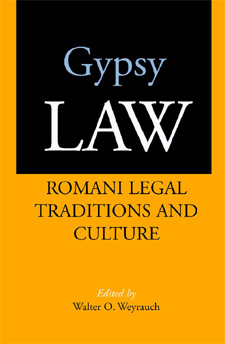 | Title: Gypsy law: Romani legal traditions and culture Author: Weyrauch, Walter O. (Walter Otto) 1919- Published: University of California Press, 2001 Subjects: Law | Cultural Anthropology | Ethnic Studies | Sociology | European Studies | Political Theory Publisher's Description: Approximately one thousand years ago Gypsies, or Roma, left their native India. Today Gypsies can be found in countries throughout the world, their distinct culture still intact in spite of the intense persecution they have endured. This authoritative collection brings together leading Gypsy and non-Gypsy scholars to examine the Romani legal system, an autonomous body of law based on an oral tradition and existing alongside dominant national legal networks. For centuries the Roma have survived by using defensive strategies, especially the absolute exclusion of gadje (non-Gypsies) from their private lives, their values, and information about Romani language and social institutions. Sexuality, gender, and the body are fundamental to Gypsy law, with rules that govern being pure (vujo) or impure (marime) . Women play an important role in maintaining legal customs, having the power to sanction and to contaminate, but they are not directly involved in legal proceedings. These essays offer a comparative perspective on Romani legal procedures and identity, including topics such as the United States' criminalization of many aspects of Gypsy law, parallels between Jewish and Gypsy law, and legal distinctions between Romani communities. The contributors raise broad theoretical questions that transcend the specific Gypsy context and offer important insights into understanding oral legal traditions. Together they suggest a theoretical framework for explaining the coexistence of formal and informal law within a single legal system. They also highlight the ethical dilemmas encountered in comparative law research and definitions of "human rights." [brief] Similar Items |
| 7. | 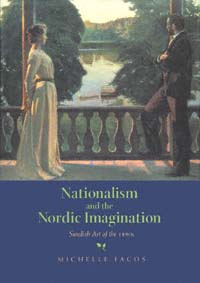 | Title: Nationalism and the Nordic imagination: Swedish art of the 1890s Author: Facos, Michelle Published: University of California Press, 1998 Subjects: Art | Art History | European Studies Publisher's Description: This richly illustrated book is a lucid introduction to a largely neglected manifestation of Modernism that came out of fin-de-siècle Sweden. Michelle Facos presents the first study in English to seriously examine the movement known as Swedish National Romanticism. Her work is especially valuable in showing how the movement's primitivist tendencies were related to, but different from, similar cultural forces in Germany and other parts of Europe at that time. Facos shows how a small group of Swedish artists espoused a politically progressive, culturally conservative form of nationalism. These artists - among them Carl Larsson, Bruno Liljefors, and Hanna Hirsch Pauli - produced a specifically national Swedish art by focusing on indigenous history, legends, and folk tales as well as uniquely Swedish-Nordic values, geography, and ethnography. Their breathtaking images of the Nordic landscape shaped a communal "Folk" identity that accented regionalism, solidarity, and attachment to the past and protested against the perceived dangers of capitalist industrialism and urban expansion. By 1900 Sweden was on its way to realizing a society of social, economic, and political equality, and the National Romantic painters were no longer renegades. Facos's portrayal of their movement will attract readers in the arts, historians, folklorists, cultural anthropologists, and sociologists. [brief] Similar Items |
| 8. | 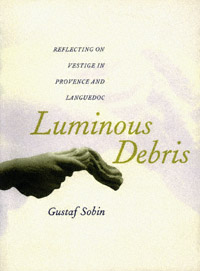 | Title: Luminous debris: reflecting on vestige in Provence and Languedoc Author: Sobin, Gustaf Published: University of California Press, 2000 Subjects: Literature | Cultural Anthropology | European Studies | Ancient History | Philosophy | French Studies Publisher's Description: Interpreting vestige with the eloquence of a poet and the knowledge of a field archaeologist, Gustaf Sobin explores his elected terrain: the landscapes of Provence and Languedoc. Drawing on prehistory, protohistory, and Gallo-Roman antiquity, the twenty-six essays in this book focus on a particular place or artifact for the relevance inherent in each. A Bronze Age earring or the rippling wave pattern in Massiolite ceramic are more than archival curiosities for Sobin. Instead they invite inquiry and speculation on existence itself: Artifacts are read as realia, and history as an uninterrupted sequence of object lessons.As much travel writing as meditative discourse, Luminous Debris is enhanced by a prose that tracks, questions, and reflects on the materials invoked. Sobin engages the reader with precise descriptions of those very materials and the messages to be gleaned from their examination, be they existential, ethical, or political.An American expatriate living in Provence for the past thirty-five years, Gustaf Sobin shares his enthusiasm for his adopted landscape and for a vertical interpretation of its strata. In Luminous Debris he creates meaning out of matter and celebrates instances of reality, past and present. [brief] Similar Items |
| 9. |  | Title: Crafting the culture and history of French chocolate Author: Terrio, Susan J. (Susan Jane) 1950- Published: University of California Press, 2000 Subjects: Anthropology | European Studies | French Studies | Food and Cooking | Sociology Publisher's Description: This absorbing narrative follows the craft community of French chocolatiers - members of a tiny group experiencing intensive international competition - as they struggle to ensure the survival of their businesses. Susan J. Terrio moves easily among ethnography, history, theory, and vignette, telling a story that challenges conventional views of craft work, associational forms, and training models in late capitalism. She enters the world of Parisian craft leaders and local artisanal families there and in southwest France to relate how they work and how they confront the representatives and structures of power, from taste makers, CEOs, and advertising executives to the technocrats of Paris and Brussels. Looking at craft culture and community from a cross-disciplinary perspective, Terrio finds that the chocolatiers affirm their collective identity and their place in the present by commemorating selectively their role in history. In addition to joining a distinguished tradition of American anthropological writing on the role of food, her study of the social production of taste in the invention of vintage, grand cru chocolates lends specificity and weight to theories of consumption by Pierre Bourdieu and others. The book will appeal to anthropologists, cultural studies scholars, and anyone curious about life in contemporary France. [brief] Similar Items |
| 10. | 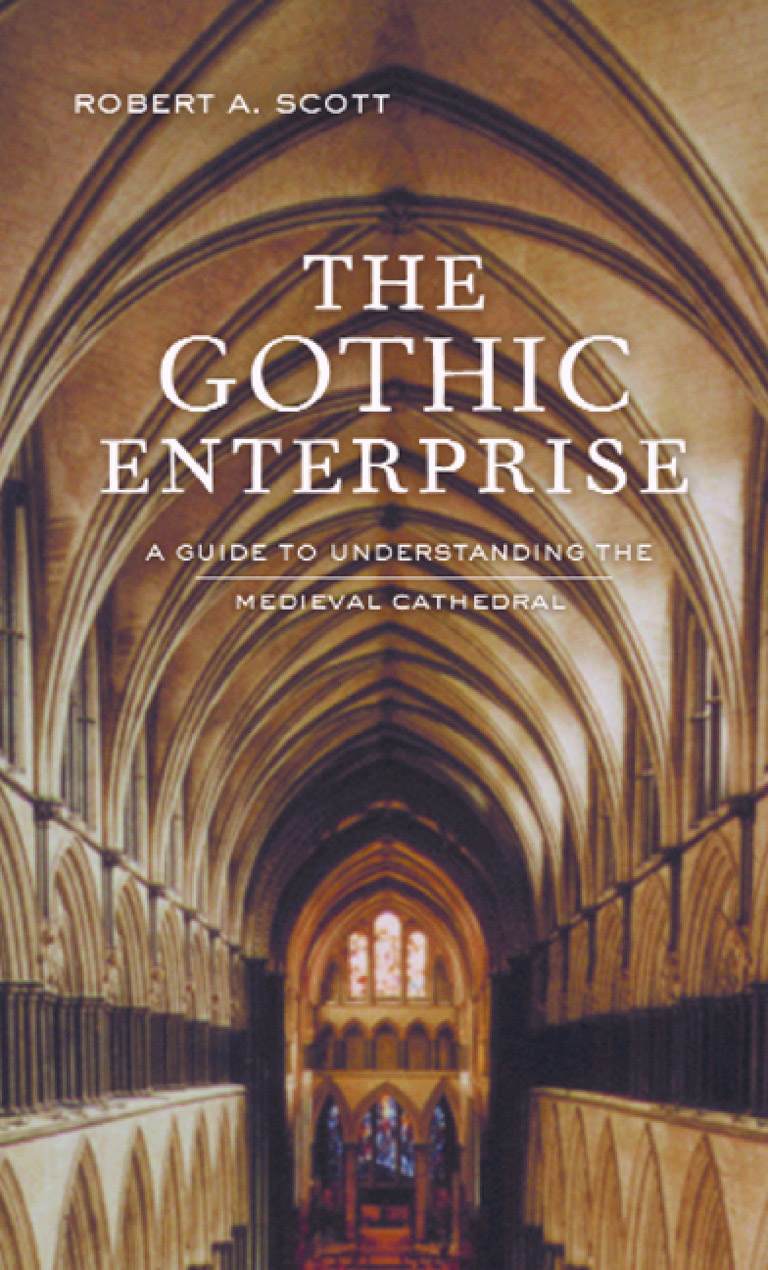 | Title: The Gothic enterprise: a guide to understanding the Medieval cathedral Author: Scott, Robert A 1935- Published: University of California Press, 2003 Subjects: Medieval Studies | Architecture | European Studies | Christianity | European History | Architectural History | Sociology | Sociology Publisher's Description: The great Gothic cathedrals of Europe are among the most astonishing achievements of Western culture. Evoking feelings of awe and humility, they make us want to understand what inspired the people who had the audacity to build them. This engrossing book surveys an era that has fired the historical imagination for centuries. In it Robert A. Scott explores why medieval people built Gothic cathedrals, how they built them, what conception of the divine lay behind their creation, and how religious and secular leaders used cathedrals for social and political purposes. As a traveler's companion or a rich source of knowledge for the armchair enthusiast, The Gothic Enterprise helps us understand how ordinary people managed such tremendous feats of physical and creative energy at a time when technology was rudimentary, famine and disease were rampant, the climate was often harsh, and communal life was unstable and incessantly violent. While most books about Gothic cathedrals focus on a particular building or on the cathedrals of a specific region, The Gothic Enterprise considers the idea of the cathedral as a humanly created space. Scott discusses why an impoverished people would commit so many social and personal resources to building something so physically stupendous and what this says about their ideas of the sacred, especially the vital role they ascribed to the divine as a protector against the dangers of everyday life. Scott's narrative offers a wealth of fascinating details concerning daily life during medieval times. The author describes the difficulties master-builders faced in scheduling construction that wouldn't be completed during their own lifetimes, how they managed without adequate numeric systems or paper on which to make detailed drawings, and how climate, natural disasters, wars, variations in the hours of daylight throughout the year, and the celebration of holy days affected the pace and timing of work. Scott also explains such things as the role of relics, the quarrying and transporting of stone, and the incessant conflict cathedral-building projects caused within their communities. Finally, by drawing comparisons between Gothic cathedrals and other monumental building projects, such as Stonehenge, Scott expands our understanding of the human impulses that shape our landscape. [brief] Similar Items |
| 11. | 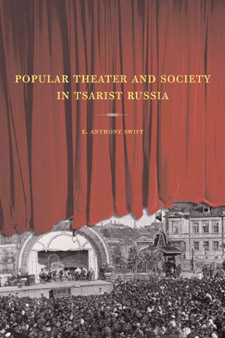 | Title: Popular theater and society in Tsarist Russia Author: Swift, Eugene Anthony Published: University of California Press, 2002 Subjects: History | European History | Russian and Eastern European Studies | Popular Culture | European Literature | European Studies Publisher's Description: This is the most comprehensive study available of the popular theater that developed during the last decades of tsarist Russia. Swift examines the origins and significance of the new "people's theaters" that were created for the lower classes in St. Petersburg and Moscow between 1861 and 1917. His extensively researched study, full of anecdotes from the theater world of the day, shows how these people's theaters became a major arena in which the cultural contests of late imperial Russia were played out and how they contributed to the emergence of an urban consumer culture during this period of rapid social and political change. Swift illuminates many aspects of the story of these popular theaters - the cultural politics and aesthetic ambitions of theater directors and actors, state censorship politics and their role in shaping the theatrical repertoire, and the theater as a vehicle for social and political reform. He looks at roots of the theaters, discusses specific theaters and performances, and explores in particular how popular audiences responded to the plays. [brief] Similar Items |
| 12. | 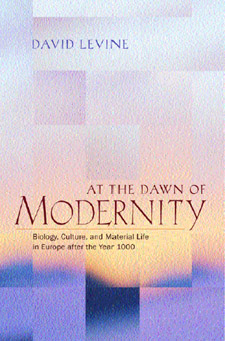 | Title: At the dawn of modernity: biology, culture, and material life in Europe after the year 1000 Author: Levine, David 1946- Published: University of California Press, 2001 Subjects: Sociology | Social Theory | European History | European Studies Publisher's Description: Looking at a neglected period in the social history of modernization, David Levine investigates the centuries that followed the year 1000, when a new kind of society emerged in Europe. New commercial routines, new forms of agriculture, new methods of information technology, and increased population densities all played a role in the prolonged transition away from antiquity and toward modernity. At the Dawn of Modernity highlights both "top-down" and "bottom-up" changes that characterized the social experience of early modernization. In the former category are the Gregorian Reformation, the imposition of feudalism, and the development of centralizing state formations. Of equal importance to Levine's portrait of the emerging social order are the bottom-up demographic relations that structured everyday life, because the making of the modern world, in his view, also began in the decisions made by countless men and women regarding their families and circumstances. Levine ends his story with the cataclysm unleashed by the Black Death in 1348, which brought three centuries of growth to a grim end. [brief] Similar Items |
| 13. | 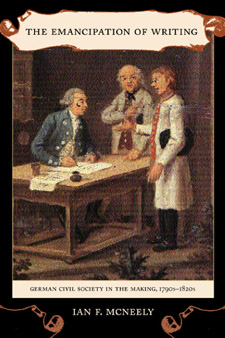 | Title: The emancipation of writing: German civil society in the making, 1790s-1820s Author: McNeely, Ian F 1971- Published: University of California Press, 2003 Subjects: History | European Studies | German Studies | European History | Sociology | Political Theory | Anthropology Publisher's Description: The Emancipation of Writing is the first study of writing in its connection to bureaucracy, citizenship, and the state in Germany. Stitching together micro- and macro-level analysis, it reconstructs the vibrant, textually saturated civic culture of the German southwest in the aftermath of the French Revolution and Napoleon's invasions. Ian F. McNeely reveals that Germany's notoriously oppressive bureaucracy, when viewed through the writing practices that were its lifeblood, could also function as a site of citizenship. Citizens, acting under the mediation of powerful local scribes, practiced their freedoms in written engagements with the state. Their communications laid the basis for civil society, showing how social networks commonly associated with the free market, the free press, and the voluntary association could also take root in powerful state institutions. [brief] Similar Items |
| 14. |  | Title: Decades of crisis: Central and Eastern Europe before World War II Author: Berend, T. Iván (Tibor Iván) 1930- Published: University of California Press, 1998 Subjects: History | European History | European Studies | Russian and Eastern European Studies | Economics and Business Publisher's Description: Only by understanding Central and Eastern Europe's turbulent history during the first half of the twentieth century can we hope to make sense of the conflicts and crises that have followed World War II and, after that, the collapse of Soviet-controlled state socialism. Ivan Berend looks closely at the fateful decades preceding World War II and at twelve countries whose absence from the roster of major players was enough in itself, he says, to precipitate much of the turmoil.As waves of modernization swept over Europe, the less developed countries on the periphery tried with little or no success to imitate Western capitalism and liberalism. Instead they remained, as Berend shows, rural, agrarian societies notable for the tenacious survival of feudal and aristocratic institutions. In that context of frustration and disappointment, rebellion was inevitable. Berend leads the reader skillfully through the maze of social, cultural, economic, and political changes in Hungary, Czechoslovakia, Yugoslavia, Poland, Romania, Bulgaria, Albania, Austria, Latvia, Lithuania, Estonia, and the Soviet Union, showing how every path ended in dictatorship and despotism by the start of World War II. [brief] Similar Items |
| 15. | 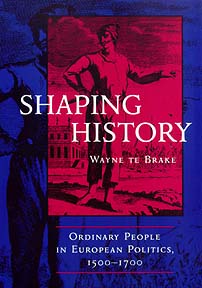 | Title: Shaping history: ordinary people in European politics, 1500-1700 Author: Te Brake, Wayne Ph Published: University of California Press, 1998 Subjects: History | European History | European Studies | Politics Publisher's Description: As long as there have been governments, ordinary people have been acting in a variety of often informal or extralegal ways to influence the rulers who claimed authority over them. Shaping History shows how ordinary people broke down the institutional and cultural barriers that separated elite from popular politics in sixteenth- and seventeenth-century Europe and entered fully into the historical process of European state formation. Wayne te Brake's outstanding synthesis builds on the many studies of popular political action in specific settings and conflicts, locating the interaction of rulers and subjects more generally within the multiple political spaces of composite states. In these states, says Te Brake, a broad range of political subjects, often religiously divided among themselves, necessarily aligned themselves with alternative claimants to cultural and political sovereignty in challenging the cultural and fiscal demands of some rulers. This often violent interaction between subjects and rulers had particularly potent consequences during the course of the Reformation, the Counter-Reformation, and the Crisis of the Seventeenth Century. But, as Te Brake makes clear, it was an ongoing political process, not a series of separate cataclysmic events. Offering a compelling alternative to traditionally elite-centered accounts of territorial state formation in Europe, this book calls attention to the variety of ways ordinary people have molded and shaped their own political histories. [brief] Similar Items |
| 16. | 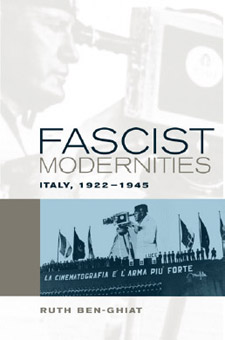 | Title: Fascist modernities: Italy, 1922-1945 Author: Ben-Ghiat, Ruth Published: University of California Press, 2001 Subjects: European Studies | History | Intellectual History | European History Publisher's Description: Ruth Ben-Ghiat's innovative cultural history of Mussolini's dictatorship is a provocative discussion of the meanings of modernity in interwar Italy. Eloquent, pathbreaking, and deft in its use of a broad range of materials, this work argues that fascism appealed to many Italian intellectuals as a new model of modernity that would resolve the contemporary European crisis as well as long-standing problems of the national past. Ben-Ghiat shows that - at a time of fears over the erosion of national and social identities - Mussolini presented fascism as a movement that would allow economic development without harm to social boundaries and national traditions. She demonstrates that although the regime largely failed in its attempts to remake Italians as paragons of a distinctly fascist model of mass society, twenty years of fascism did alter the landscape of Italian cultural life. Among younger intellectuals in particular, the dictatorship left a legacy of practices and attitudes that often continued under different political rubrics after 1945. [brief] Similar Items |
| 17. |  | Title: War stories: the search for a usable past in the Federal Republic of Germany Author: Moeller, Robert G Published: University of California Press, 2001 Subjects: History | European Studies | German Studies | European History Publisher's Description: Robert G. Moeller powerfully conveys the complicated story of how West Germans recast the recent past after the Second World War. He rejects earlier characterizations of a postwar West Germany dominated by attitudes of "forgetting" or silence about the Nazi past. He instead demonstrates the "selective remembering" that took place among West Germans during the postwar years: in particular, they remembered crimes committed against Germans, crimes that - according to some contemporary accounts - were comparable to the crimes of Germans against Jews. Moeller draws on a wide range of U.S. and German government documents, political debates, film archives, letters, oral histories, and newspaper accounts. [brief] Similar Items |
| 18. |  | Title: Where the world ended: re-unification and identity in the German borderland Author: Berdahl, Daphne 1964- Published: University of California Press, 1999 Subjects: Anthropology | Cultural Anthropology | German Studies | Geography | European Studies | Social Problems Publisher's Description: When the Berlin Wall fell, people who lived along the dismantled border found their lives drastically and rapidly transformed. Daphne Berdahl, through ongoing ethnographic research in a former East German border village, explores the issues of borders and borderland identities that have accompanied the many transitions since 1990. What happens to identity and personhood, she asks, when a political and economic system collapses overnight? How do people negotiate and manipulate a liminal condition created by the disappearance of a significant frame of reference?Berdahl concentrates especially on how these changes have affected certain "border zones" of daily life - including social organization, gender, religion, and nationality - in a place where literal, indeed concrete, borders were until recently a very powerful presence. Borders, she argues, are places of ambiguity as well as of intense lucidity; these qualities may in fact be mutually constitutive. She shows how, in a moment of headlong historical transformation, larger political, economic, and social processes are manifested locally and specifically. In the process of a transition between two German states, people have invented, and to some extent ritualized, cultural practices that both reflect and constitute profound identity transformations in a period of intense social discord. Where the World Ended combines a vivid ethnographic account of everyday life under socialist rule and after German reunification with an original investigation of the paradoxical human condition of a borderland. [brief] Similar Items |
| 19. |  | Title: What is sexual harassment?: from Capitol Hill to the Sorbonne Author: Saguy, Abigail Cope 1970- Published: University of California Press, 2003 Subjects: Gender Studies | American Studies | Anthropology | Ethnic Studies | European Studies | Men and Masculinity | Women's Studies | Law | Sociology Publisher's Description: In France, a common notion is that the shared interests of graduate students and their professors could lead to intimate sexual relations, and that regulations curtailing those relationships would be both futile and counterproductive. By contrast, many universities and corporations in the United States prohibit sexual relationships across hierarchical lines and sometimes among coworkers, arguing that these liaisons should have no place in the workplace. In this age of globalization, how do cultural and legal nuances translate? And when they differ, how are their subtleties and complexities understood? In comparing how sexual harassment - a concept that first emerged in 1975 - has been defined differently in France and the United States, Abigail Saguy explores not only the social problem of sexual harassment but also the broader cultural concerns of cross-national differences and similarities. [brief] Similar Items |
| 20. | 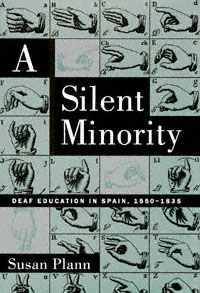 | Title: A silent minority: deaf education in Spain, 1550-1835 Author: Plann, Susan Published: University of California Press, 1997 Subjects: History | Language and Linguistics | Medieval History | European History | Education | European Studies | Medieval Studies | Cultural Anthropology | Cultural Anthropology Publisher's Description: This timely, important, and frequently dramatic story takes place in Spain, for the simple reason that Spain is where language was first systematically taught to the deaf. Instruction is thought to have begun in the mid-sixteenth century in Spanish monastic communities, where the monks under vows of silence employed a well-established system of signed communications. Early in the 1600s, deaf education entered the domain of private tutors, laymen with no use for manual signs who advocated oral instruction for their pupils. Deaf children were taught to speak and lip-read, and this form of deaf education, which has been the subject of controversy ever since, spread from Spain throughout the world.Plann shows how changing conceptions of deafness and language constantly influenced deaf instruction. Nineteenth-century advances brought new opportunities for deaf students, but at the end of what she calls the preprofessional era of deaf education, deaf people were disempowered because they were barred from the teaching profession. The Spanish deaf community to this day shows the effects of the exclusion of deaf teachers for the deaf.The questions raised by Plann's narrative extend well beyond the history of deaf education in Spain: they apply to other minority communities and deaf cultures around the world. At issue are the place of minority communities within the larger society and, ultimately, our tolerance for human diversity and cultural pluralism. [brief] Similar Items |